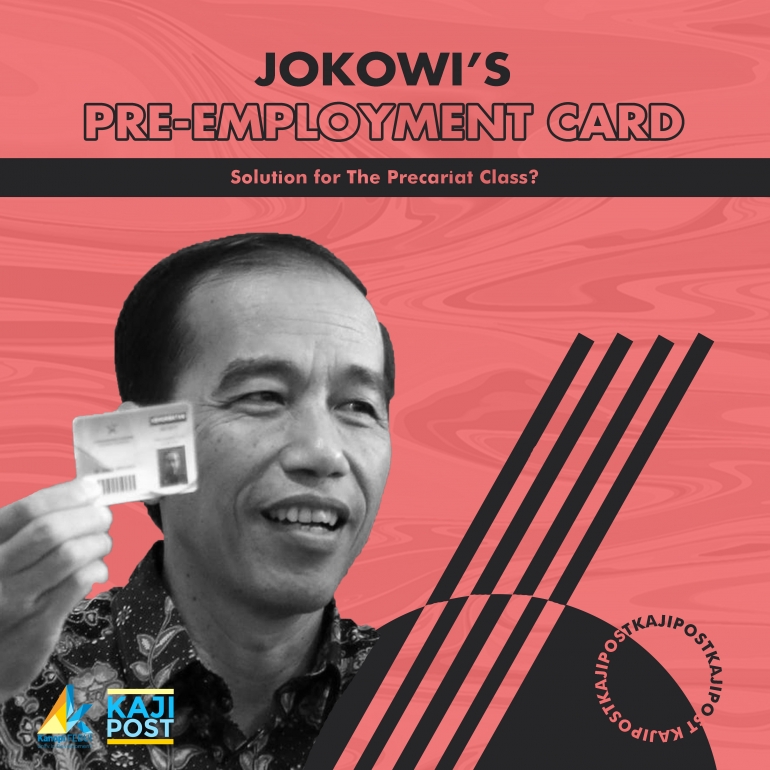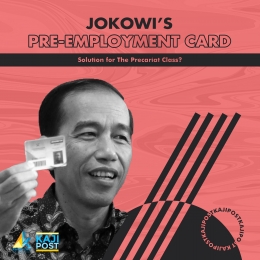Educated Yet Precarious?
The definition of "precariat" was popularized by Guy Standing in his book "The Precariat: the New Dangerous Class (2014)". In his book, Standing mentions that the precariat is someone who is a "precarious worker" with unclear working hours, job security, employment contracts, work environment, wages, work mechanisms, or work systems. On the other hand, although they both require an increase in the quality of life, the proletariat has more "clarity of work, workers' rights, even guarantees of the future" than the precarious.
This term has also developed in the past few years, where the precariat or "precarious workers" that exist today are not only defined as lower class workers who have a very unfortunate working conditions, but currently has expanded to the younger generation who are fresh graduates, both at the high school level, diploma and bachelor degree in universities. Although they are already relatively highly educated, they are "forced" to accept any available work[4], even with low wages/salaries and unclear employment contracts.
The shift in definition is in line with the current facts and data in Indonesia. Data from BPS shows the number of unemployed people per month in February 2019 is declining, but diploma and university graduates are increasingly unemployed. Unemployed diploma and university graduates rose by respectively 8.5% and 25% when compared to the same period in 2017. This was influenced by several factors, such as skills that did not match industry needs, higher income and status expectations of limited employment opportunities. This may make graduates feel pessimistic about the possibility of getting the jobs they want. In the end, they are forced to accept whatever work is available, as is the case with lower class workers.
The phenomenon of the precariat class that is currently occurring in Indonesia's young generation is reflected in the fate of contract workers (outsourcing), internships, freelancers, part time workers or as partners in companies or community institutions. The current generations have become the precariat class, which can be easily removed at any time in the name of interests and benefits in companies supported by a flexible labor market system that aims to transfer risk and minimize the company's losses as an employer by guaranteeing it to the workforce.
This phenomenon needs attention by the government because according to the OECD, Indonesia will become one of the countries with the most young scholars in 2020, which can increase the number of college graduates who are unemployed and consequently increase unemployment in Indonesia. In addition, the demographic bonus that will be faced by Indonesia in the future also needs to be considered because the population of productive age will increase and will reach its peak in a few decades. These two things must be anticipated by the government so that the current unemployment rate in Indonesia does not increase.
By also targeting the fresh graduates, the government hopes that this pre-employment card program will increase their employment rate, thereby reducing the number of unemployed people in Indonesia.
The Right and Effective Solution?
If we look at a glance, this pre-employment card policy will certainly provide a solution to the current problems of the Indonesian precariat class, namely the freshly graduated young generation. But, to what extent will this policy be on target and effective?
Institute for Development of Economics and Finance (INDEF) researcher Bhima Yudhistira stated that pre-employment cards are not necessarily effective in reducing unemployment[5]. Another problem that must be considered by the government is the absorption of its workforce. He explained that employment growth actually slowed, especially in the manufacturing industry which should be able to absorb a lot of labor.
In terms of improving quality, pre-employment cards are also considered to be less effective because there are opportunities for wrong motivation in participating in pre-employment card training programs. Instead of adding skills and competencies to work, it is feared that participants who take part in the program only target incentives to be given. So, it has the potential to cause moral hazard in the application of the pre-employment card program.







